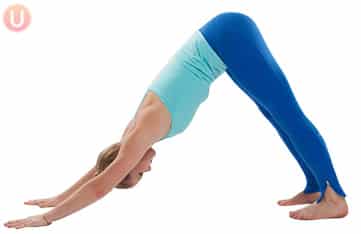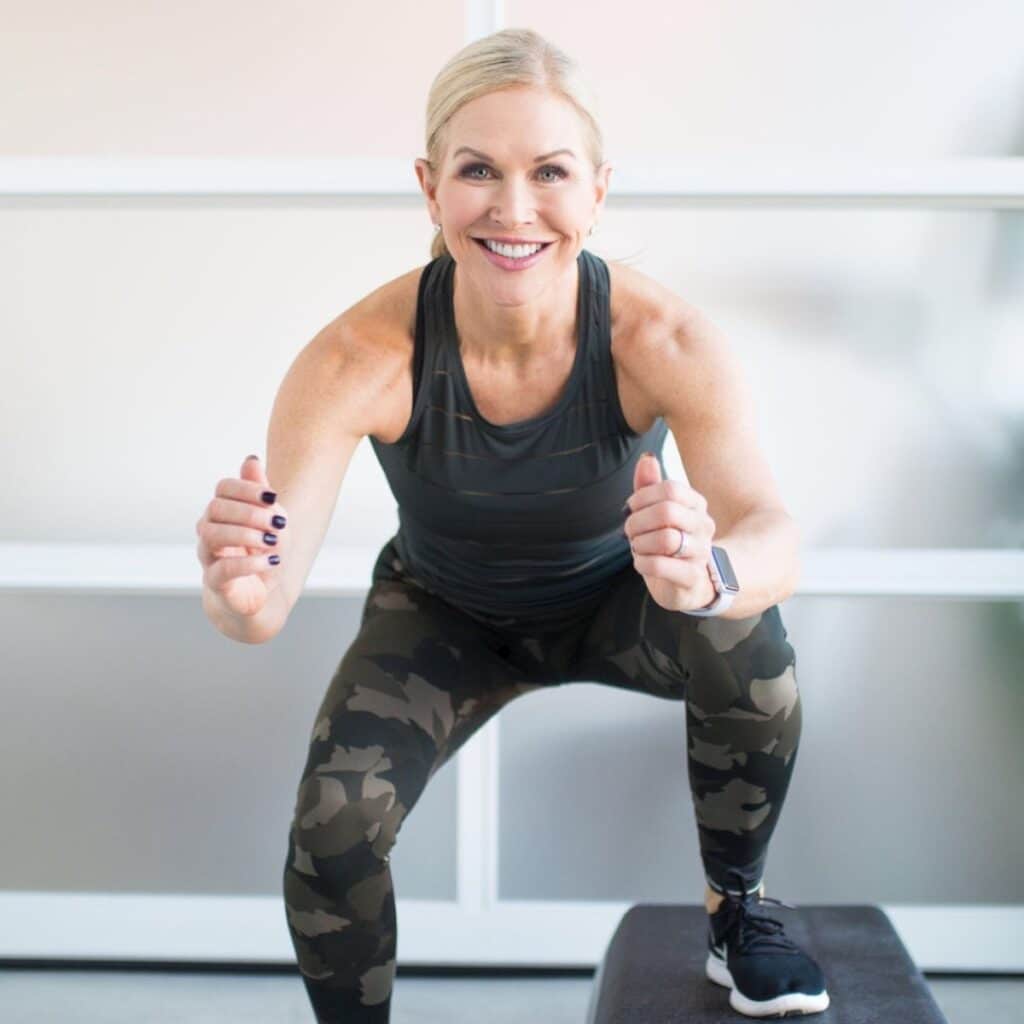This post contains affiliate links. Please see our disclosure policy.

A favorite among most yoga students, downward dog is an outstanding pose for stretching the low back, hamstrings, lower legs and feet. When you arrive in this pose, there is almost an instant sensation of relief as tightness along the entire back of your body is released.
Anyone and everyone – yoga student or not – should learn how to do downward dog.
There is a reason downward dog is repeated so frequently during almost all yoga practices. It is a pose like no other. Not only is it simple for most people to do, but is feels good to nearly everyone. In addition, it is one of the most malleable poses since it can be adjusted to go deeper or lighter almost instantly by applying more or less pressure through the hands, arms and back.
And if you’ve ever owned a dog you know instantly where this pose got its name. The position of downward dog is inherent in dogs because of the release it provides in the spine.
More than just a stretch for the spine, however, downward dog is a pose of strength. It takes back, shoulder and arm muscles to push the body into its proper position for Downward Dog.
The deeper you want to stretch, the more you need to push through your upper body muscles and the more you work on isometric strength.
One of the unique benefits of Downward Dog is the stretch in the lower leg, achilles and feet. No other pose provides this kind of stretch to a place on your body that can be so tight and prone to injury.
Tight calves pull on achilles tendons which pull on the bottom of the feet. When you are able to stretch all of those in one simple pose, you should definitely take advantage!

Save This Article To Read Later
Downward Dog Pose Instructions
- Begin in a kneeling position on your mat with hands directly under shoulders, fingers spread wide.
- Tuck your toes under and engage your abdominals as you push your body up off the mat so only your hands and feet are on the mat.
- Press through your hands moving your chest gently toward your thighs and your heels gently toward the floor.
- Relax your head and neck and breathe fully.
The below video shows how to perform downward dog as well as adding in a push-up.
What Muscles Does Downward Dog Work?
Downward dog is a favorite amongst most yogis because of the incredible stretch for the entire backside of your body. Specifically downward dog stretches the back, hamstrings, calves and ankles. It can even stretch the bottom of the feet when performed correctly.
Benefits of Downward Dog
There are many reasons you should incorporate downward dog into your workouts. Here are just a few:
Stretches the Hamstrings
Hamstrings are universally tight amongst most people, but particularly among athletes. Downward dog is known for its instant relief of hamstring tightness and ability to open up the back of the legs.
Low Back Health
With over 80% of the population in the United States reporting some type of lower back pain in their life, finding a stretch like the downward dog to keep that area healthy is a must. If your low back is tight or sore, the downward dog will give you instant relief.
Strengthens the Upper Back
While focusing on the amazing stretch benefits in a downward dog, people often forget they are using upper back and shoulder muscle to help guide the body into this deep position. Downward dog promotes a strong, healthy upper back.
How Many Calories Does Downward Dog Burn?
People often ask how many calories they are burning in their workouts. Most exercises will generally burn about 100 calories for every 10 minutes you are working at higher intensity. Bottom line – the harder you work, the more calories you burn.
The benefits of the downward dog are uniquely different from a high calorie burn activity such as running or cycling. Results are not necessarily reflected in the calorie burn. However, keep in mind that a good yoga practice, which includes downward dog, can be a great way to burn the calories desired.
Other Exercises Similar to Downward Dog
If you like the downward dog and the results you get from it, here are a few more exercises you might want to try.


